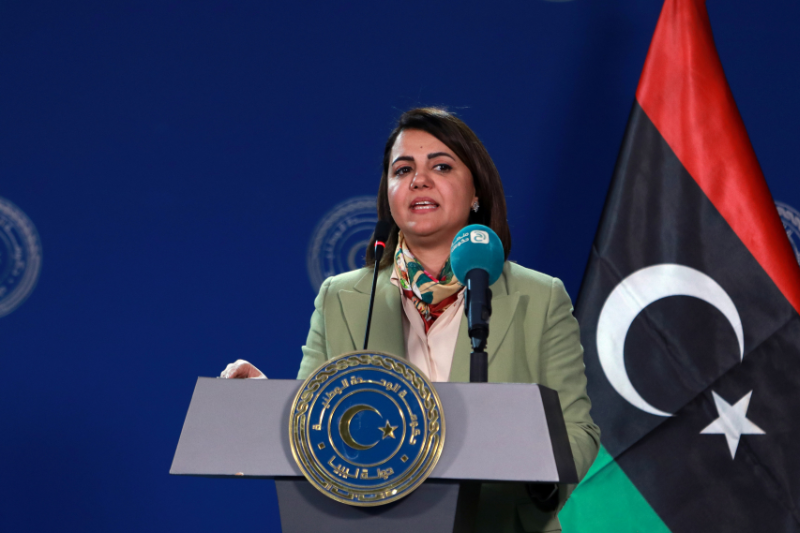The Prime Minister of Libya, Abdulhamid al-Dbeibah, has suspended Najla Mangoush, Libya’s Foreign Minister, over her alleged meeting with Eli Cohen, the Minister of Foreign Affairs of Israel.
On Sunday, Libya’s prime minister Abdulhamid al-Dbeibah announced that he had suspended the foreign minister and referred her to an investigation because she allegedly met Eli Cohen.
Israel announced that Eli Cohen met Najla Mangoush last week in Rome. Israel also said that the two ministers had discussed possible cooperation between the two countries. The meeting sparked protests in Libya as the country does not recognise Israel.
Keep Reading
Reaction in Libya
Libya’s Foreign Ministry said in a statement that the alleged meeting was “an unprepared and casual encounter” and did not include “any discussions, agreements or consultations.” Libya’s Foreign Ministry also said that Najla Mangoush rejected any meetings with Israeli representatives.
However, Israel’s foreign ministry said that the meeting between Eli Cohen and Najla Mangoush was facilitated by Italian Foreign Minister Antonio Tajani. Eli Cohen also said that they discussed the importance of preserving Jewish heritage in Libya.
Subsequently, Abdulhamid al-Dbeibah, the prime minister of Libya under the Government of National Unity in Tripoli, sent Najla Mangoush for an investigation over the whole matter. He announced in a Facebook statement the decision to “temporarily suspend” Najla Mangoush.
Libya’s presidential council said that Libya cannot normalize relations with Israel. The Speaker’s Office in parliament also accused Najla Mangoush of making war against the government of Libya.
The Presidency Council called on GNU Prime Minister Abdulhamid to give clarification about the matter. The High State Council said those responsible “should be held accountable.”
Protests in Libya
Protests broke out in Tripoli, the capital and largest city of Libya, and other cities over Najla Mangoush’s meeting with Eli Cohen. Protesters blocked roads and burnt tyres. They also waved the Palestinian flag because Libyans backed the Palestinian cause.

